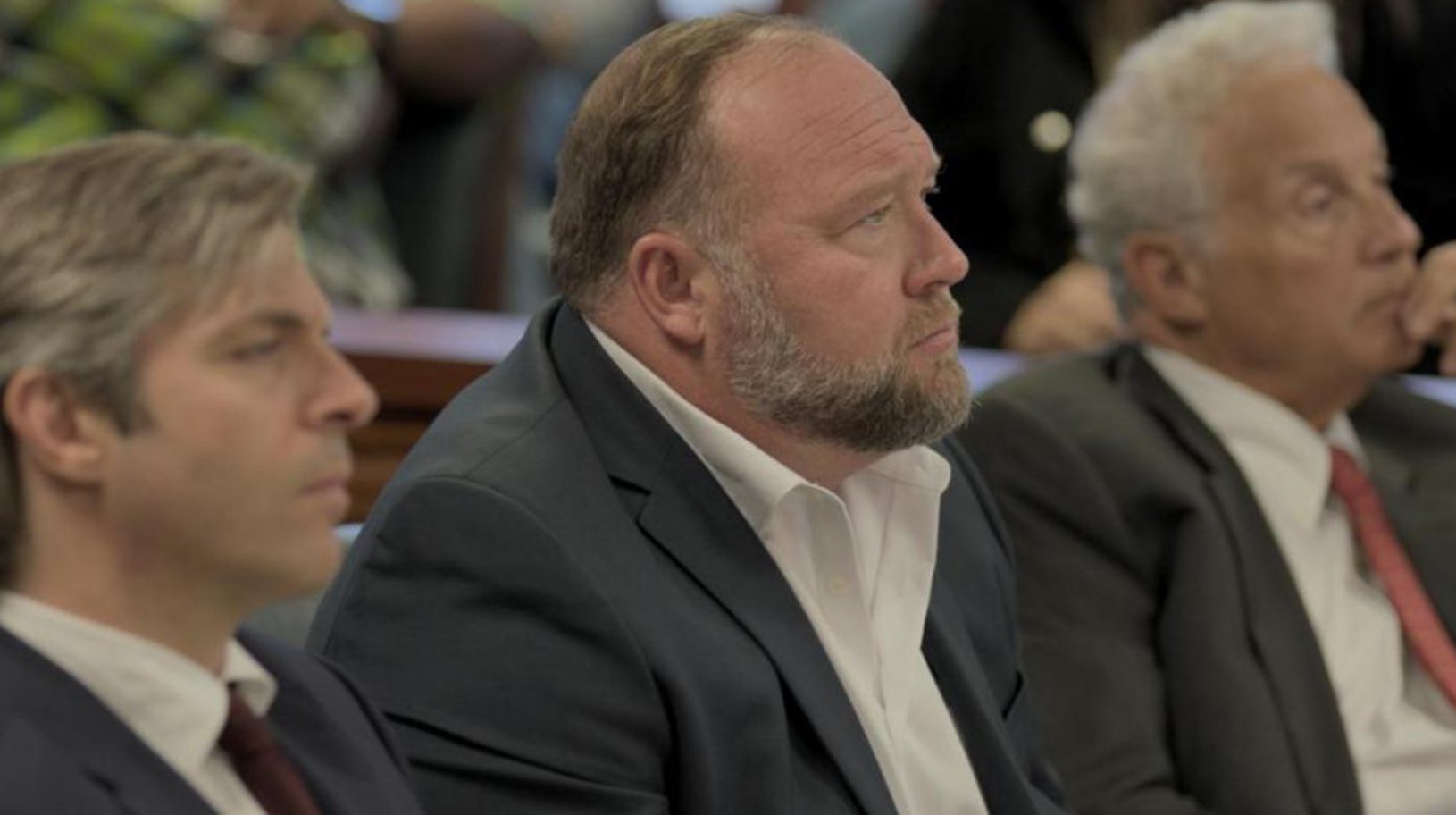AUSTIN, Texas (CN) — Two years ago, parents of children who were killed in the Sandy Hook Elementary School shooting in Newtown, Connecticut, sued Austin-based anti-government conspiracy theorist Alex Jones and won.
That’s the true-to-life synopsis of U.K. filmmaker Dan Reed’s new film “The Truth vs. Alex Jones.” Ahead of its March 26 release on HBO and Max, the documentary premiered Monday in Austin, Texas, during the annual South By Southwest film festival. Reed, who has explored the darker side of human nature in his previous documentaries, served as its writer, producer, director and cameraman.
“The Truth vs. Alex Jones” is a gripping account of the conspiracy theorist’s falsehoods, the effect they had on Sandy Hook parents and those parents’ journey to hold Jones accountable.
Over the course of the two-hour film, viewers see the rise of Jones from amateur public-access television host in always-weird Austin, Texas, to popularizer of the idea that the shooting at Sandy Hook was a so-called false flag. Jones mocked parents whose children were sensely murdered, claiming they were actors whose children were still alive and well.
As these claims grew in popularity, so t00 did Jones and his platform, Infowars. People who believe in Jones’s falsehoods went on to harass the parents online. They received death threats, and one parent even got a voicemail from a person who claimed he’d desecrated their child’s grave.
As the abuse accumulated and as Jones used the lies to promote and sell vitamins and supplements on his website, the parents reached their breaking point. In 2018, Neil Heslin and Scarlett Lewis, the parents of six-year-old shooting victim Jessie Lewis, sued Jones in Austin for defamation and acting with malice to inflict mental and emotional anguish.
More lawsuits followed, including from the family members of nine more victims and a first responder in Connecticut. A year after the lawsuits were filed, Reed reached out to the parents’ lawyers and began capturing the parents’ journey for justice.
Reed and his crew were given exclusive access to Jones’ Texas trial after Travis County District Court Judge Maya Guerra Gamble permitted cameras and microphones in the courtroom. Having such access allowed him to portray the legal proceedings in a way that would not have been possible otherwise.
“Court proceedings are very alienating,” Reed said in an interview with Courthouse News. “There is a language that people don't understand,” as well as “a very set way of doing things and procedures that are opaque. I wanted to make it make sense to people, and I wanted to shoot pictures where they felt like they're in the room.”
It wasn’t the first time Reed has turned his camera on humanity’s darker side. In 2019, his two-part series for HBO, “Leaving Neverland,” told the story of two men who claimed they were sexually abused as children by pop icon Michael Jackson. He’s also taken viewers into the 2013 al-Shabab mall attack in Nairobi, Kenya, and the deadly Jan. 6 Capitol riots.
Acknowledging the theme of violence throughout his filmography, Reed said in his interview that the Sandy Hook massacre itself was not the subject of the film. Rather, it was an inciting incident that led to historic defamation trials more than ten years later.
Before Jones ever stepped foot in Austin’s downtown courtroom in the summer of 2022, judges in Texas and Connecticut had already issued default judgments against him for defaming the parents after he failed to comply with court-ordered discovery requests.
Going into trial to determine damages, Jones began claiming that he was a victim of a rigged judicial system. And yet during his deposition and trial, he acknowledged that his statements about Sandy Hook were false.










